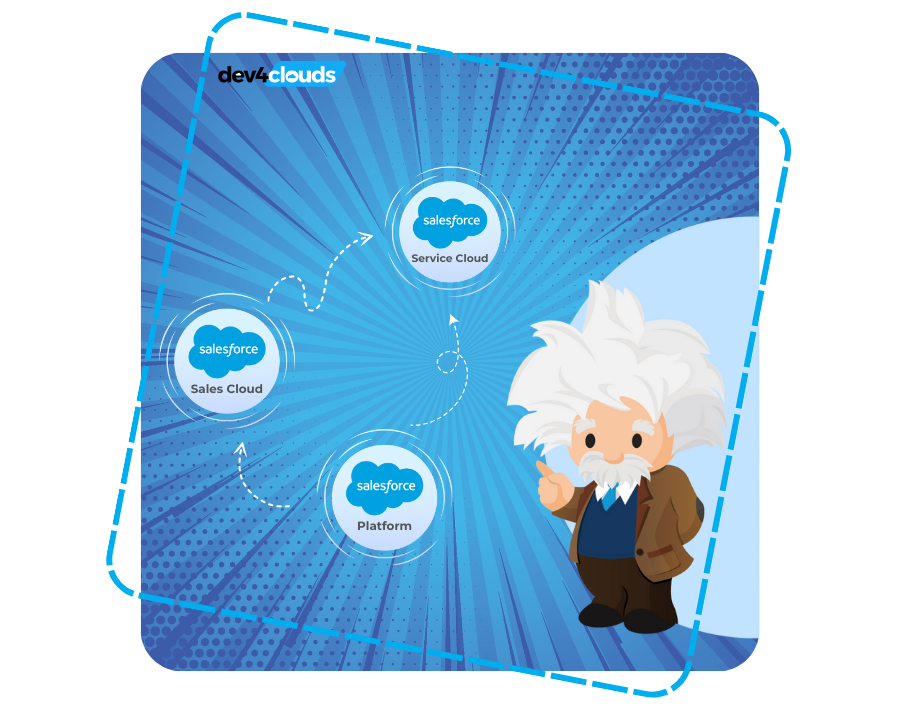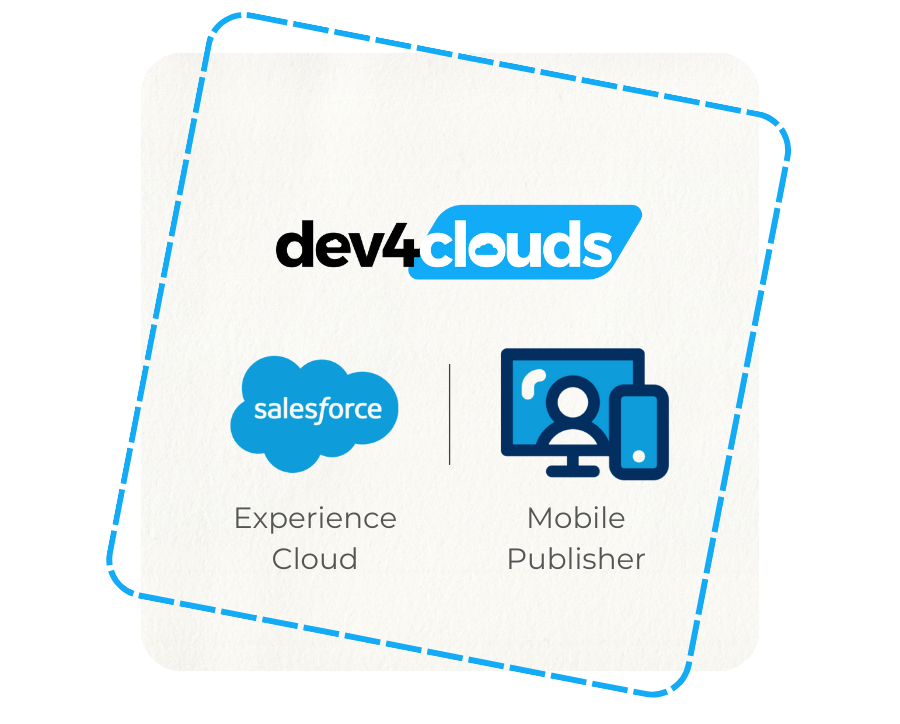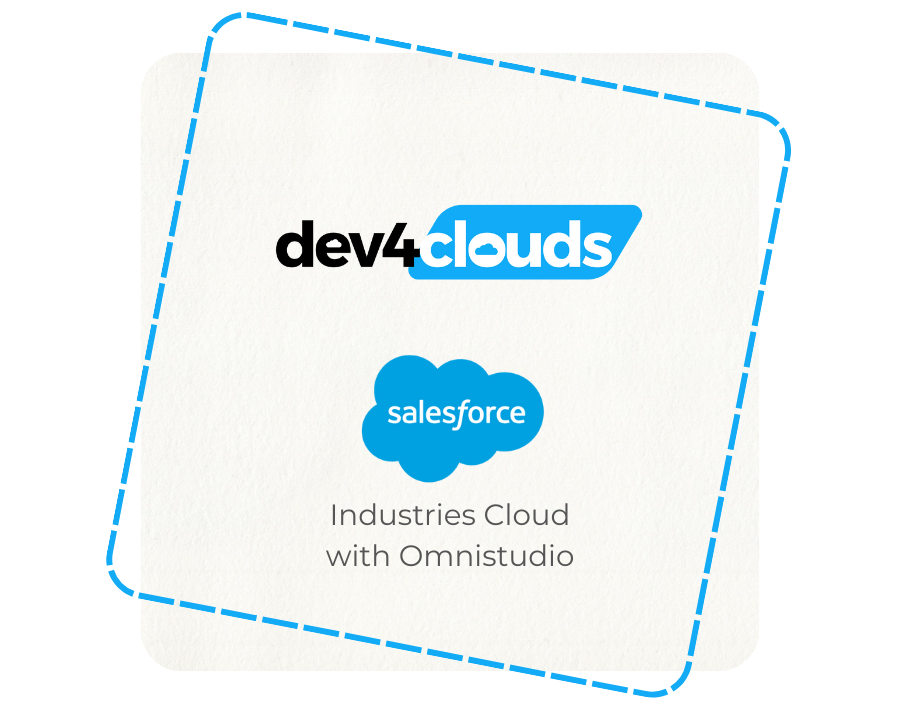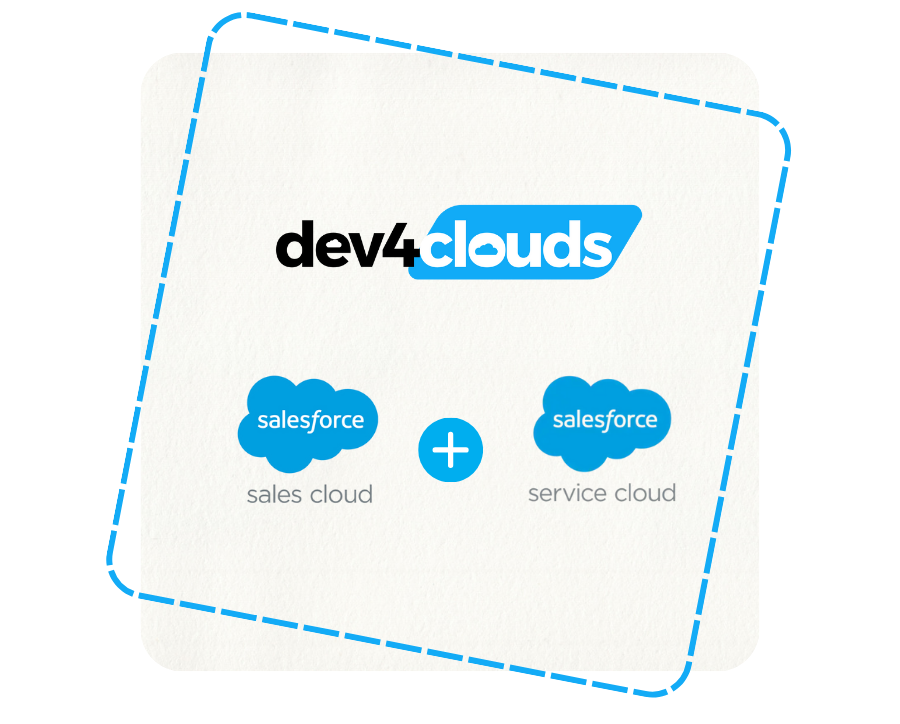Very often I hear that these clouds are mixed up and that the names of the clouds are used in the wrong context. Salesforce has become a leading name in the Customer Relationship Management (CRM) industry, offering a wide range of tools to help businesses streamline operations, enhance customer relationships, and drive growth. However, the platform’s versatility sometimes (I’d say very often) leads to confusion, particularly around its core offerings: the Salesforce Platform, Salesforce Sales Cloud, and Salesforce Service Cloud. Understanding the differences between these can help businesses make the right choice for their needs. This article will clarify what each of these tools is, their unique features, and how they fit into the Salesforce ecosystem.
I’m not sure what level of Salesforce familiarity you have at this point, so let’s start from the beginning…
What is Salesforce? A Brief Overview
The Global Leader in CRM
Salesforce is widely recognized as the leading CRM solution globally, with a market share that surpasses many of its competitors. Established in 1999, the platform started as a simple CRM solution but has grown into an extensive suite of tools designed to help businesses in sales, marketing, customer service, and beyond.
Understanding Salesforce’s Core Offerings
At its core, Salesforce is designed to help businesses manage their customer interactions across multiple channels. The platform’s offerings include products for sales, marketing, service, analytics, and more. While many of its products are designed for specific business functions like Sales Cloud and Service Cloud, the Salesforce Platform allows for custom development and tailored solutions, which can often lead to confusion among users.
Let’s go one level deeper and see what are definitions of Salesforce Platform, Sales Cloud, and Service Cloud.
What is the Salesforce Platform?
Defining the Salesforce Platform
The Salesforce Platform, sometimes referred to as Force.com, is a robust development framework that allows businesses to create and customize their own CRM applications. While Sales Cloud and Service Cloud offer out-of-the-box CRM solutions for sales and customer service teams, the Salesforce Platform provides a foundation for developers to build apps that meet specific business needs.
So to simplify, if we consider Platform as a foundation, then all other clouds (almost all, but we will talk about Salesforce products that don’t have Platform as a foundation in another post) are “extensions” and made on top of it.
Key Features of the Salesforce Platform
The Salesforce Platform is packed with features that make it ideal for businesses looking to tailor their CRM solutions:
- AppExchange Integration: Users can install third-party apps or create custom applications to expand functionality.
- Automation Capabilities: Tools like Salesforce Flow and Process Builder allow businesses to automate workflows, saving time and reducing manual tasks.
- API Integrations: The platform offers seamless integration with external systems, making it easier to connect with existing business tools.
These features empower businesses to create highly specialized CRM solutions that fit their unique operational requirements.
Use Cases of Salesforce Platform
The Salesforce Platform is particularly valuable for companies with complex workflows or highly customized business models. Developers and IT teams can build apps to automate processes, integrate with other software solutions, and provide a tailored experience that off-the-shelf solutions like Sales Cloud or Service Cloud may not offer.
Salesforce Platform vs Sales Cloud and Service Cloud
Unlike Sales Cloud and Service Cloud, which come with pre-configured features designed for specific departments, the Salesforce Platform is more of a blank canvas. It offers the tools and capabilities to build custom applications but does not provide a ready-made CRM solution on its own. This distinction is crucial, as many users mistakenly believe the Salesforce Platform itself is a CRM product when it is actually a framework for building CRM solutions.
Salesforce Sales Cloud Explained
– TODO: add image Salesforce Sales Cloud
What is Salesforce Sales Cloud?
Salesforce Sales Cloud is a CRM product designed specifically for sales teams to help them manage customer relationships, streamline their sales processes, and close deals faster. It’s an out-of-the-box solution built on the Salesforce Platform, but it is tailored for managing sales activities, from lead generation to opportunity tracking and sales forecasting.
Sales Cloud provides businesses with tools to optimize their sales performance, improve visibility into customer data, and ultimately increase revenue. Whether a business is focused on B2B or B2C sales, Sales Cloud offers features that enable better management of the sales pipeline.
Key Features of Salesforce Sales Cloud
Lead Management
One of the standout features of Sales Cloud is its ability to manage leads efficiently. It allows sales teams to capture, qualify, and assign leads to the right sales representatives, ensuring that no opportunity falls through the cracks.
Opportunity Management
Sales Cloud helps sales teams track deals at every stage of the sales cycle. With detailed views of each opportunity, sales reps can focus on high-priority deals, ensuring they move through the pipeline smoothly.
Sales Forecasting
Sales managers gain real-time insights into the sales pipeline and can generate accurate forecasts based on data. This helps with planning and resource allocation, ensuring that the team is set up for success.
Reports and Dashboards
Sales Cloud comes with built-in reporting and dashboard features, giving sales teams and managers visibility into performance metrics. These reports can be customized to track key performance indicators (KPIs), such as conversion rates, deal size, and time to close.
Integration with Marketing Automation
Sales Cloud can integrate with various marketing automation platforms, making it easier for sales teams to follow up on leads generated by marketing efforts. This seamless connection ensures that sales and marketing efforts are aligned, leading to improved conversion rates.
How Sales Cloud Supports Sales Teams
Streamlining the Sales Process from Lead to Closure
Sales Cloud is designed to simplify the entire sales process, providing tools that allow sales professionals to manage their day-to-day activities more effectively. With features like automated lead assignment and opportunity tracking, sales teams can focus on closing deals rather than spending time on administrative tasks.
Enhancing Customer Relationship Management for Sales Professionals
Sales Cloud gives sales reps a complete view of their customers, including historical data, contact information, and previous interactions. This 360-degree view enables personalized communication and helps reps build stronger relationships with their prospects and customers.
Mobile Accessibility for On-the-Go Sales
Sales Cloud is accessible from any device, allowing sales teams to work on the go. Whether in the field or at a customer meeting, sales reps can access customer data, update opportunities, and log activities directly from their mobile devices, ensuring they stay productive regardless of location.
Salesforce Service Cloud: Key Features and Benefits
What is Salesforce Service Cloud?
Salesforce Service Cloud is a CRM product tailored for customer service and support teams. While Sales Cloud focuses on enhancing sales processes, Service Cloud is designed to improve the customer support experience by managing customer queries, support tickets, and service interactions. It enables businesses to provide personalized, fast, and efficient customer service, ensuring higher customer satisfaction and retention.
Service Cloud equips service agents with the tools they need to solve customer problems quickly, whether those interactions occur via phone, email, chat, or social media.
Core Features of Salesforce Service Cloud
Case Management
Service Cloud’s case management system allows support agents to track, prioritize, and resolve customer inquiries and issues from multiple channels (e.g., phone, chat, email). Cases are automatically assigned based on business rules, ensuring that the right agent handles the issue.
Customer Portals and Knowledge Base
Customers can access self-service portals and knowledge bases through Service Cloud. These features enable users to find answers to common questions, troubleshoot issues independently, or log cases when additional support is needed. The knowledge base helps reduce the number of inbound requests while improving service efficiency.
Omnichannel Support
Service Cloud allows agents to manage customer interactions across multiple channels in a unified interface. Whether customers are contacting the business via chat, phone, social media, or email, all interactions are tracked and managed from a single dashboard. This provides a seamless experience for both customers and support agents.
Einstein AI for Customer Service
Service Cloud leverages Einstein AI, Salesforce’s AI engine, to provide smarter and faster customer service. Features like predictive case routing, automated workflows, and chatbots can help service agents provide quicker resolutions while offering customers more self-service options.
Service Cloud vs Sales Cloud: What’s the Difference?
Focus on Service vs. Sales
While both Sales Cloud and Service Cloud are built on the Salesforce Platform, their core functionalities serve different purposes. Sales Cloud is designed for sales professionals, helping them manage leads, opportunities, and deals. In contrast, Service Cloud is meant for customer service teams, focusing on managing support cases, solving customer issues, and improving customer satisfaction.
Different Tools for Different Teams
- Sales Cloud: Used by sales teams to track leads, manage contacts, and close deals. It’s focused on revenue generation and the sales pipeline.
- Service Cloud: Used by support teams to track customer issues and manage case resolutions. It’s focused on improving customer experiences through efficient service.
Integration Capabilities
Though both clouds are separate tools, they can be integrated to work together. For example, a customer issue that begins as a sales inquiry may escalate into a support case after the purchase. In such scenarios, the two clouds can provide a seamless handoff from sales to service, ensuring the customer has a smooth experience throughout their journey.
Now when went through the definition of each one, let’s get back to the question from the beginning…
Salesforce Platform vs Sales Cloud vs Service Cloud: Key Differences
Purpose and Audience
The core distinction between Salesforce Platform, Sales Cloud, and Service Cloud lies in their purpose and target audience:
- Salesforce Platform is a development framework primarily aimed at IT professionals and developers who want to build custom applications, integrations, and workflows.
- Sales Cloud is intended for sales teams to manage leads, track opportunities, and close deals.
- Service Cloud is built for customer service and support teams to manage customer issues, track service requests, and resolve cases.
Features Comparison
- Salesforce Platform provides tools for customization, including the creation of custom objects, workflows, and integrations. It is a flexible framework for building tailored solutions.
- Sales Cloud offers out-of-the-box sales tools like lead management, opportunity tracking, and sales forecasting, which can be used with minimal customization.
- Service Cloud focuses on customer support with features like case management, omnichannel support, and a knowledge base.
Pricing Models
The pricing structure also varies depending on the product:
- Salesforce Platform: Pricing depends on the level of customization, the number of users, and the amount of custom development needed.
- Sales Cloud and Service Cloud: These products follow a more straightforward licensing model, where pricing is typically based on the number of users and the features included in the package.
When to Choose Salesforce Platform Over Sales Cloud and Service Cloud
Business Needs That Require Custom Solutions
Salesforce Platform is the right choice when a business has complex workflows or unique business processes that cannot be addressed by standard CRM products. For instance, if a company needs to create a completely customized customer interaction experience or integrate with multiple other systems, Salesforce Platform offers the flexibility to build these solutions from the ground up.
Leveraging the Platform for Integration and Automation
If your business requires extensive integration with external software or systems, or you want to automate complex workflows, the Salesforce Platform provides the necessary tools. Custom apps, integrations, and workflow automations can be built on the platform to fit specific business needs, making it ideal for organizations that require more than what out-of-the-box solutions like Sales Cloud or Service Cloud offer.
When to Choose Salesforce Sales Cloud
Best Use Cases for Sales Teams
Salesforce Sales Cloud is the optimal choice for businesses looking to improve their sales process. It is particularly beneficial in scenarios where:
- Lead management and pipeline tracking are critical for growth.
- Sales teams need real-time insights into sales performance and forecasts.
- Integration with marketing automation tools is necessary to ensure smooth transitions from lead generation to sales closing.
Sales Cloud helps sales teams focus on the activities that matter most—converting leads into customers and managing the sales pipeline efficiently. It is ideal for both small and large sales organizations that need a CRM solution out of the box without the need for heavy customization.
Industries Benefiting from Sales Cloud
Sales Cloud is widely used across various industries, including:
- Technology: Managing complex sales cycles and nurturing leads.
- Retail: Tracking customer interactions and managing sales across multiple channels.
- Financial Services: Managing client relationships and sales opportunities efficiently.
When to Choose Salesforce Service Cloud
Best Use Cases for Customer Service Teams
Salesforce Service Cloud is the right solution for organizations focused on improving their customer service operations. It is ideal for businesses that:
- Handle a high volume of customer support inquiries and need a streamlined system to manage them.
- Offer multichannel support (phone, email, social media, and live chat) and need a unified view of customer interactions.
- Require advanced tools like case management, self-service portals, and omnichannel capabilities to provide fast and efficient customer service.
Service Cloud allows service agents to manage and resolve customer issues effectively while providing a seamless and personalized experience. It’s designed for businesses that prioritize high levels of customer satisfaction and aim to retain customers by delivering excellent support.
Industries Benefiting from Service Cloud
Service Cloud is popular in industries where customer support is a critical business function:
- E-commerce: Managing product inquiries and returns.
- Telecommunications: Handling high volumes of service requests.
- Healthcare: Managing patient inquiries and support services in real-time.
How to Implement Salesforce Platform, Sales Cloud, or Service Cloud
Steps for Successful Implementation
Implementing any Salesforce product requires careful planning to ensure it meets the organization’s goals. Here are the key steps to successful implementation:
- Evaluate Business Needs: Start by assessing the specific needs of your business. Whether you require a full-fledged CRM solution like Sales Cloud or Service Cloud, or need to develop custom workflows on the Salesforce Platform, the requirements should be well-documented.
- Customize the Solution: Tailor the platform to meet your business needs. This may involve configuring standard CRM products like Sales Cloud or building custom applications on the Salesforce Platform.
- Train Your Teams: Proper training is crucial to ensure that sales, customer service, or IT teams understand how to use the platform effectively. Salesforce offers training resources like Trailhead, an online learning platform, to help onboard users.
- Ongoing Support and Iteration: Once implemented, monitor the system’s performance, gather feedback, and make necessary adjustments. Salesforce products allow for continuous optimization to meet evolving business needs.
Avoiding Common Pitfalls in Salesforce Implementations
- Lack of Clear Objectives: Ensure you have a defined goal before starting the implementation. Without clear objectives, the system might not meet your specific needs.
- Insufficient User Training: Investing in thorough user training ensures that employees can use the system to its full potential.
Common Myths and Misconceptions About Salesforce Products
“Salesforce is Only for Sales Teams”
One of the most common misconceptions is that Salesforce is only beneficial for sales teams. While Sales Cloud is designed specifically for sales activities, the broader Salesforce ecosystem includes tools for marketing, customer service, and app development, making it valuable across various departments.
“Sales Cloud and Service Cloud Offer the Same Features”
Another frequent misconception is that Sales Cloud and Service Cloud are interchangeable. While both are built on the same platform, Sales Cloud is for sales professionals, focusing on managing leads and opportunities, while Service Cloud is for customer support teams, centered around resolving customer issues and providing service.
“Salesforce Is Too Complex for Small Businesses”
Some small businesses believe Salesforce products are too complex or costly for their needs. However, Salesforce offers scalable solutions that fit companies of all sizes, from startups to enterprises. Small businesses can implement Sales Cloud or Service Cloud without heavy customization and benefit from streamlined workflows right out of the box.
Conclusion: Understanding the Distinctions Between Salesforce Platform, Sales Cloud, and Service Cloud
In summary, while Salesforce offers a powerful ecosystem of tools, understanding the differences between the Salesforce Platform, Sales Cloud, and Service Cloud is essential for selecting the right solution for your business.
- Salesforce Platform is a customizable framework designed for developers to build tailored CRM solutions and integrations.
- Sales Cloud is a ready-to-use CRM specifically for sales teams, focusing on lead management, sales tracking, and forecasting.
- Service Cloud caters to customer service and support teams, helping manage customer interactions and service cases across multiple channels.
Each of these tools serves distinct business functions, and selecting the right product depends on your organization’s specific needs—whether it’s customizing workflows, optimizing sales processes, or delivering exceptional customer service. By understanding the capabilities of each tool, businesses can maximize their CRM investment and deliver better outcomes across departments.
FAQs About Salesforce Platform, Sales Cloud, and Service Cloud
Can I use Salesforce Platform without Sales Cloud or Service Cloud?
Yes, Salesforce Platform can be used independently to build custom apps and solutions. However, many businesses integrate it with Sales Cloud or Service Cloud for enhanced CRM functionalities.
Is Sales Cloud suitable for small businesses?
Absolutely. Sales Cloud offers scalable solutions that can cater to businesses of all sizes, from startups to large enterprises. Its out-of-the-box tools are particularly valuable for small businesses looking to streamline their sales processes without heavy customization.
How is Service Cloud different from traditional helpdesk software?
Service Cloud goes beyond traditional helpdesk software by providing omnichannel support, case management, self-service portals, and AI-powered tools like Einstein AI for predictive service routing and chatbots. It’s designed to offer a seamless, personalized customer service experience.
What industries benefit most from Salesforce Service Cloud?
Industries with high volumes of customer service requests, such as e-commerce, telecommunications, healthcare, and financial services, often see significant benefits from Service Cloud due to its ability to streamline service interactions across multiple channels.
What’s the main advantage of building on Salesforce Platform over pre-built solutions?
The main advantage of using Salesforce Platform is its flexibility. You can build fully customized solutions that fit unique business processes, integrate with external systems, and automate workflows—something pre-built solutions may not offer to the same extent.









